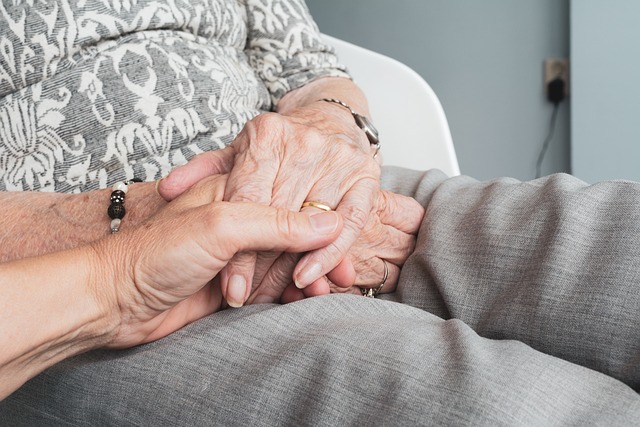Elderly Companion Services are vital for seniors wanting to age in place, offering emotional support, conversation, assistance with daily tasks, and mobility help. When choosing a service, prioritize your loved one's needs, preferences, and agencies that provide personalized matches based on skills, experience, and temperament. A supportive home environment through lighting adjustments, familiar items, adaptable furniture, regular cleaning, and warm conversations enhances quality of life for elders, fostering security and independence.
In today’s digital era, elderly companion services at home have become indispensable. As our loved ones age, ensuring their comfort and safety while maintaining independence is paramount. This article explores the multifaceted benefits of elderly companion services, highlighting how they can significantly enhance quality of life for seniors. We’ll guide you through choosing the perfect companion, offering practical tips for caregivers to create a nurturing environment at home. Discover the transformative power of these services and learn to navigate this supportive landscape.
- Understanding Elderly Companion Services: Benefits and Role
- How to Choose the Right Elderly Companion for Your Loved One
- Creating a Supportive Environment: Tips for Caregivers at Home
Understanding Elderly Companion Services: Benefits and Role

Elderly Companion Services offer a vital support system for seniors who require assistance in their daily lives but wish to maintain the comfort and familiarity of their homes. This type of service provides companionship, assistance with personal care tasks, and social interaction for older adults, ensuring they can age gracefully and independently. The benefits are numerous; it enhances quality of life by promoting self-esteem, encouraging a sense of purpose, and providing emotional support.
The role of Elderly Companion Services goes beyond mere assistance with household chores or medical tasks. Companions offer a listening ear, engage in meaningful conversations, and help combat the loneliness often experienced by seniors. They assist with mobility, remind clients to take medication, and run errands, allowing them to maintain their autonomy for as long as possible. These services cater to diverse needs, from light assistance with daily activities to more intensive care, ensuring personalized attention tailored to each individual’s unique circumstances.
How to Choose the Right Elderly Companion for Your Loved One

When selecting an elderly companion service, it’s crucial to consider your loved one’s unique needs and preferences. Different companions may offer specialized care, from basic companionship and light household assistance to more intensive support for those with specific medical conditions. Look for agencies that provide personalized matching based on skills, experience, and temperament. Read reviews and ask for references to gauge the quality of their services.
Trustworthiness, reliability, and communication are key factors. Ensure the companion service has a robust screening process, offers competitive rates without hidden fees, and maintains open lines of communication. Regular check-ins with both the client and caregiver can help ensure a good fit and address any concerns promptly. Remember, the right elderly companion can enhance your loved one’s quality of life, providing not just assistance but also companionship and emotional support.
Creating a Supportive Environment: Tips for Caregivers at Home

Creating a supportive environment is paramount for elderly companion services at home. Caregivers play a pivotal role in fostering a safe, comfortable, and engaging space that promotes independence and enhances quality of life. Simple adjustments can make all the difference. For instance, ensuring good lighting reduces fall risks and aids in daily tasks. Incorporating familiar items and personal mementos creates a sense of security and comfort. Adaptable furniture and grab bars can facilitate mobility while offering necessary support.
Additionally, maintaining an organized yet uncluttered space minimizes confusion and promotes ease of movement. Regular cleaning and routine maintenance ensure the home remains safe and comfortable over time. Caregivers should also cultivate a warm, welcoming atmosphere through gentle encouragement, positive reinforcement, and engaging conversations. These measures contribute to a supportive environment where the elderly feel valued, respected, and empowered in their own homes.
Elderly companion services at home offer a crucial support system for aging individuals, enhancing their quality of life. By understanding the benefits and selecting the right companion, caregivers can create a nurturing environment that fosters independence and dignity. With the right approach, these services can be a game-changer in ensuring seniors receive the care and companionship they deserve.



